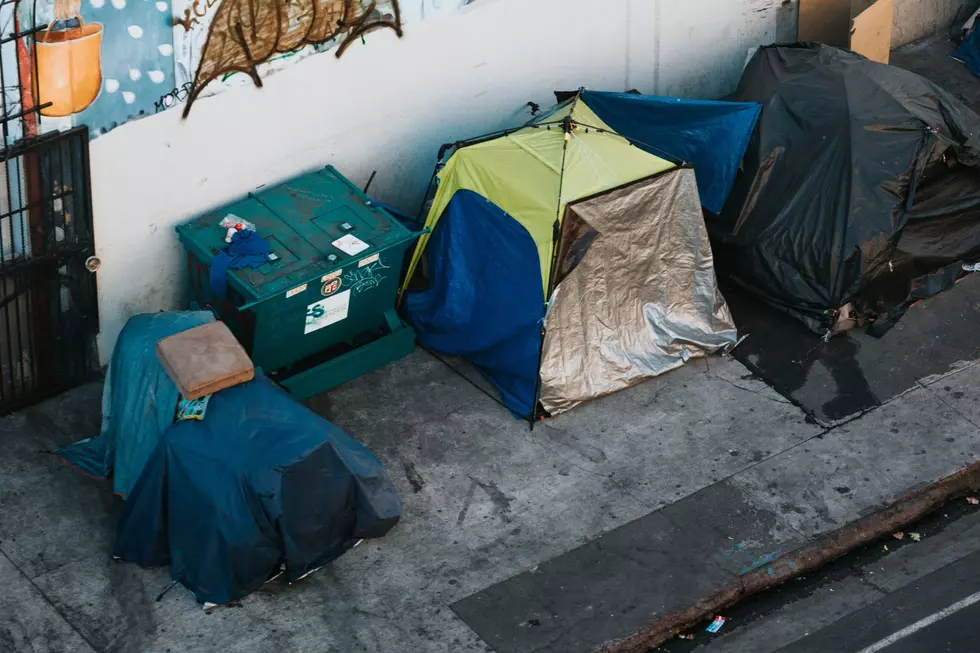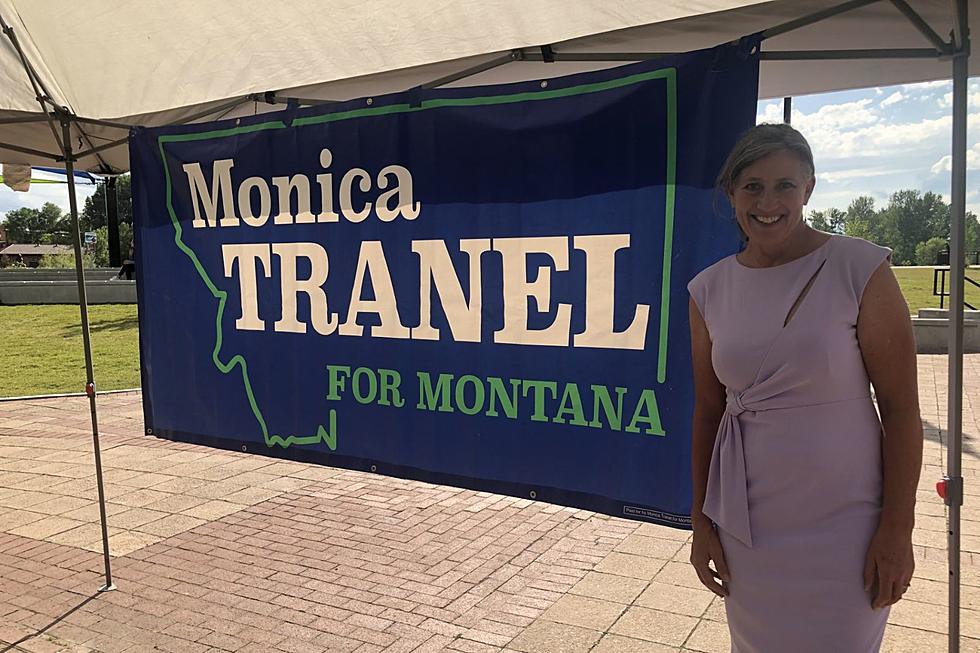
City Council candidate questionnaire: Ward 3 Gwen Jones
(Missoula Current) The Missoula Current sent a candidate questionnaire to all City Council candidates ahead of the General Election in November. Below is the response from Ward 3 council candidate Gwen Jones.
1. While this is a non-partisan race, how do you align politically?
I am a Democrat.
2. What do you see as the top issues facing the city at this point in time?
- Affordable Housing/Shelter
- Property Taxes/Tax Reform
- Climate Change
3. What would you bring to the table to resolve your top issue?
I believe that if the State of Montana legislature and Governor could constructively address tax reform, it could greatly ease the burden on property taxes for those who need it most, while also potentially providing additional much needed revenue for local governments and schools.
Our property taxation structure does not match our current economy, and additionally for decades now the legislature has shifted the burden of tax revenue from businesses to residential property tax payers. As a result, our property tax system is overtaxing residents and underfunding local government and schools.
I sit on the Board of the Montana League of Cities and Towns. Tax Reform is the League's top priority. It is a priority for cities and towns across Montana. As a member of the Missoula City Council and as a League Board member, I can help lobby the MT legislature for change.
The League is working intently on this issue, and having people testify in committees and subcommittees which are working on taxation policy is crucial. We need to be at the table to make sure that local government is adequately funded, and our regressive property taxes are changed, to benefit those who are on fixed incomes and others unable to keep up with rising property taxes.
If this issue can be addressed, it could free up revenue to go towards the other important issues of affordable housing, shelter and climate change.
4. Do you support funding police and fire, and how would you help them gain the resources they need to do their job?
Public Safety is a top responsibility for local government. The Police Department's budget has gradually increased over the years, as different positions such as School Resource Officers, Business Improvement Officers (for the Downtown), officers to cover the airport annexation area, ICAC (Internet Crimes Against Children) Officer, and others have been added. Additionally a staffing study was done several years ago, and for a city the size of Missoula, we are appropriately staffed by police officers.
However, the Fire Department has not added a new firefighter since 2008. However, calls for service have close to doubled in that same time period - the Fire Dept. responds to close to 1,000 calls per month. As a result, our service times are becoming slower. A Fire Levy was proposed for this fall election, but the City decided to not put it on the ballot based on the current climate of property tax increases and the fact that people would be asked to vote on a levy when they had not yet seen their property tax bills.
In order to add capacity to Fire to meet the growing demand for services, the Fire Department needs a 6th Fire Station in the Mullan Road region, and the station needs to be staffed 24/7. So it is a very steep increase to the city budget to add this in.
The options for supporting increased Fire capacity are limited.
- Since our general fund property tax increases are capped at half the rate of inflation (Initiative 105), tring to fund a 6th station from regular property tax increases is unworkable.
- Missoula can have a levy put to the voters to approve, which will come from property taxes and be outside the cap, but it still will be funded from pulling dollars from the same pockets...property taxes.
- Another option is the City can also continue to pursue a federal SAFER Grant (Staffing for Adequate Fire and Emergency Response) to that help to fund staffing for a new fire station. Typically the grant lasts from 3-5 years, and then all funding comes from the City. This gives us time to start to work the increases into our budget. Since the general fund levy is close to its cap, there is limited capacity to raise taxes to cover this increased capacity, unless there is a vote approved levy which would be outside of the cap.
If we do not increase Fire's capacity, the response times will become longer.
I would be remiss if I did mention the Mobile Support Team, which provides on the ground call support for people in crisis who need mental health support. This team responded to over 2,000 calls last year, and finding long term funding for this crucial program is important. That could be funded in collaboration with Missoula County, and also by eventually being able to recoup some costs via Medicaid billing.
5. In what way do you support local businesses, both big and small?
Personally, I shop locally as much as I can.
As an elected, I support businesses in various ways. I collaborate with the Missoula Economic Partnership in any way I can, as they bring interested partners to Missoula to explore investing in our community with new businesses and expanding existing businesses. That means showing up to events, talking to interested partners, and communicating that local government in Missoula is supportive, attentive and responsive to new business opportunities.
Additionally, the Missoula Redevelopment Agency works with many businesses as they create their development plans and construct new buildings. Some see this as corporate welfare, but the reality is that MRA can support new infrastructure that makes an equation work so that a business will invest in our community. And by having MRA at the table, MRA can ensure that the construction for our built environment will work better with Missoula's goals as a community.
6. The city is facing a budget crisis. How would you address it?
Our options are to cut services and lower the level of service, or raise taxes to maintain the level of service we are currently providing. I feel that property taxes are already in the red zone, but we also have a responsibility to provide services that make a difference in people's lives. Public Safety is a high priority, and if we do not sufficiently fund Fire and Police, the ramifications can be life or death. We cannot cut municipal courts as they are the third branch of government and independent; we must, by law, honor our collective bargaining agreements - meaning we can cut staff, but not wages. So that means looking at all other departments and projects to see what can be trimmed.
But as I responded in Question 3, the State of Montana needs to overhaul the property tax system. If across Montana all cities are experiencing, on some level, the challenges that Missoula is facing, then this is a structural issue. Our local tools are cutting taxes and providing less services. The legislature holds the power to address the structural issues, which is a far more holistic approach then trimming an already lean budget which provides essential services.
7. What areas would you cut to help the city balance it's budget next fiscal year?
I would prioritize public safety, and not cut Fire or Police Departments. Other areas of the budget we are legally bound to fund, such as Municipal Court, so it is not an option for reductions. Also, since a significant portion of City employees are union and have a Collective Bargaining Agreement, reducing wages is not an option. We would have to cut staff.
I would look to all other departments and ask those Department Heads to find a mandated percentage of cuts. They know best what cuts would be the most strategic. Additionally, some initiatives, such as the $60,000 for Organizational Excellence and Results Management, could be cut.
8. How would you help address homelessness, and how does personal accountability come into play?
I do think Government has a role to play in providing support to those who are homeless; I also believe the private sector and nonprofit sector does as well. To be frank, we live in a state where the state government will not aid in this issue, and the federal government helps in minor ways, but to date other than some initiatives with large cities, the Federal government has not stepped in to help address this nation wide issue.
As local government, we are faced daily with those in our community who are unhoused...and we either can focus on helping to get them sheltered, or we must clean up situations left by those camping in Missoula's parks, trails, riparian areas and living on the streets in RVs. Every city in Montana is dealing with this issue, and it is across America. Lack of housing is the biggest one factor causing this, and Missoula's housing prices are directly related to our unhoused population. The fact that the Villagio and Trinity developments are now leasing out 400 affordable units is helping to decrease our unhoused population, but we still need more inventory at all levels.
As for personal accountability, I think mental illness and substance addiction are issues for which people need support and treatment, so personal accountability is not a big part of the equation when our communities and our state do not offer much in the way of services. As for folks who have lost a job and then their housing, or had a medical event that wiped them out financially, or their rent increased and they could not afford it...I think if local government can help provide some stability until they can get back on their feet, that is a good thing. As a city councilor, I support collaborating with our private and nonprofit partners to help to provide services to create this stability to help people get back on their feet.
As an attorney, I write appeals for Social Security Disability cases, and many of those people are homeless or on the verge of being homeless. The world we are living in now is very different from the one I grew up in, where life was more manageable with less income. Income inequality is increasing and leaving some behind. So, there are many people in our world who cannot function well enough to make it in a competitive, expensive society. The Missoula I grew up in 40 years ago was different...you could afford an apartment, with roommates, on minimum wage. Those days are gone, and some people have been left behind.
9. How can the City of Missoula play a stronger role in supporting businesses and growing jobs?
Beyond supporting the Missoula Economic Partnership and Missoula Redevelopment Agency, I think more communication between local government and the business community would foster more collaboration and business development. That means electeds, including the Mayor, nurturing relationships with the Chamber of Commerce, the Missoula Downtown Association and the Mid-Town Association, as well as individual trade groups, organizations and industries. Having regular meetings to connect and collaborate can foster better communication, which in turn can reap benefits. Relationships take an investment of time and effort. But they can pay great dividends.
10. How would you support housing development in Missoula without turning to subsidies like the Affordable Housing Trust Fund?
Missoula needs more inventory at all levels of housing. We cannot control who moves to Missoula - more people creates more demand for housing. But we CAN control how the city interacts with builders and developers.
More From Newstalk KGVO 1290 AM & 98.3 FM









